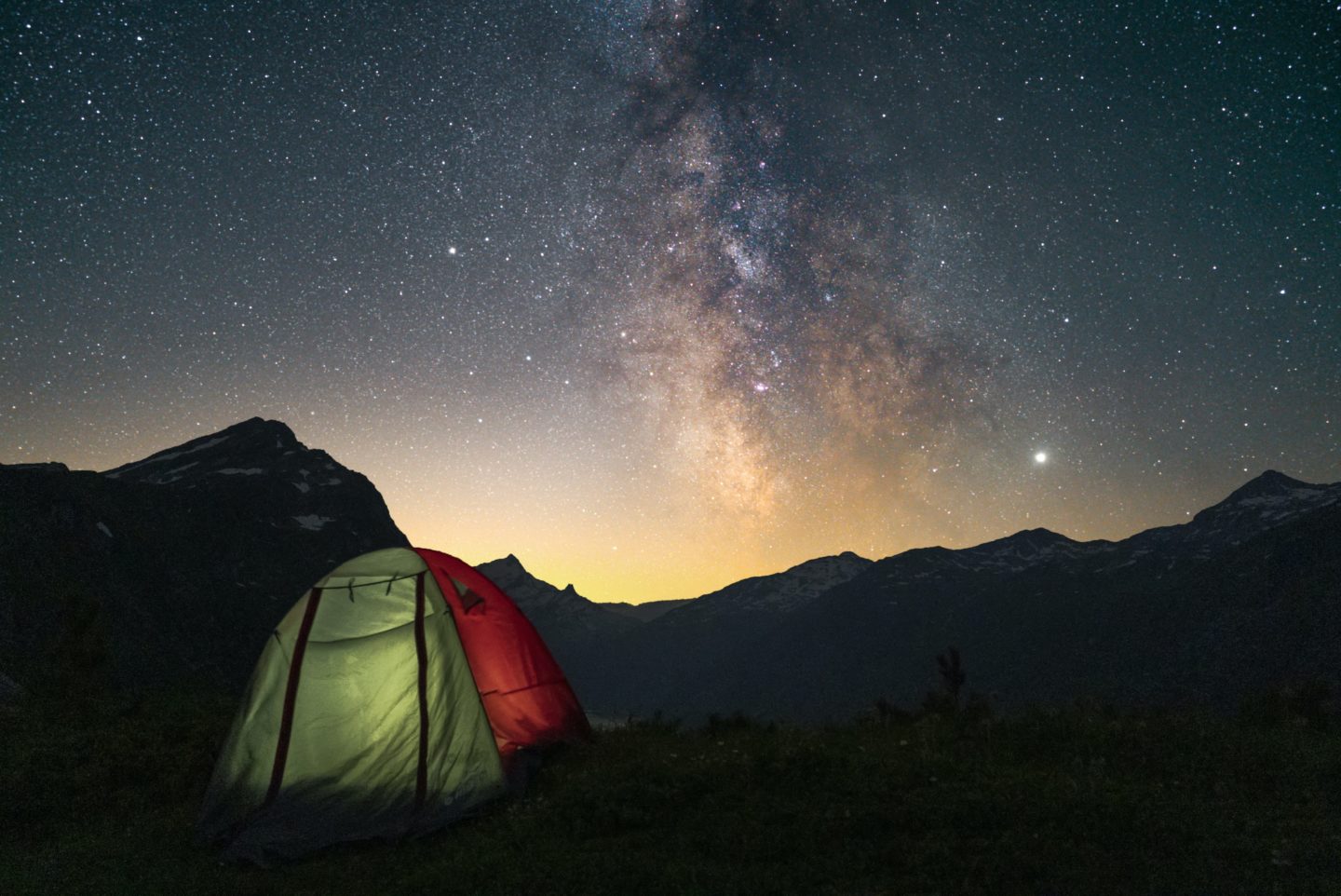
Camping can be a great means of exploring your local area – or even straying a little further afield. Whilst the UK offers a wide range of campsites from inland, to countryside, to coastal regions, sometimes it can be exciting to stray away from the beaten track, and explore wilder areas. Below we’ve put together our wild camping kit list essentials and what to expect as a beginner.
What is wild camping?
Wild camping is in the name – you explore rugged, rural areas, and pitch up outside of ‘official’ or typically authorised camping areas. The aim is to camp somewhere as remote as possible.
Wild camping gives you the freedom to find rest in the remote areas you’ve been exploring throughout the day, allowing you to evade an instant return journey – which is useful if you’ve been hiking or trekking for hours!
Whilst wild camping shares many traits with regular camping, there are some crucial differences which you need to consider, including the essential wild camping kit list, and some camping etiquette.
Wild Camping Kit List Essentials
Whilst wild camping shares kit components with regular camping, you need to be more economical with the items you pack.
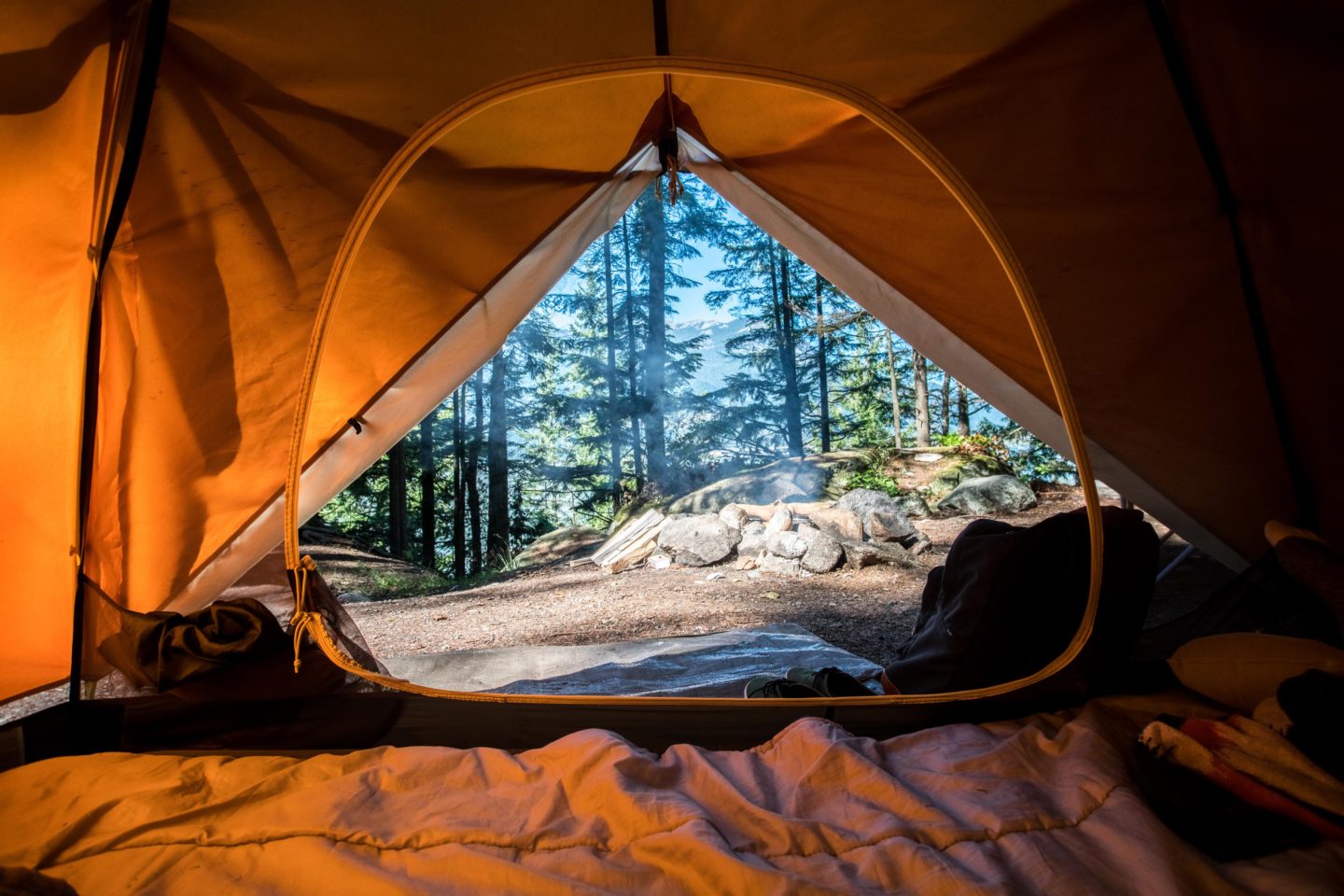
Sleeping essentials
A lightweight tent or bivvi
An ultralight tent such as the Snug Pack Journey Solo or Duo tent is an absolute must – you need your tent to be lightweight, easy to pack and transport.
You might find it useful to take your tent out of its ordinary packaging and fold it straight into your rucksack for easier transportation, though this tent does come in a roll-top bag with compressor straps, for compact packing.
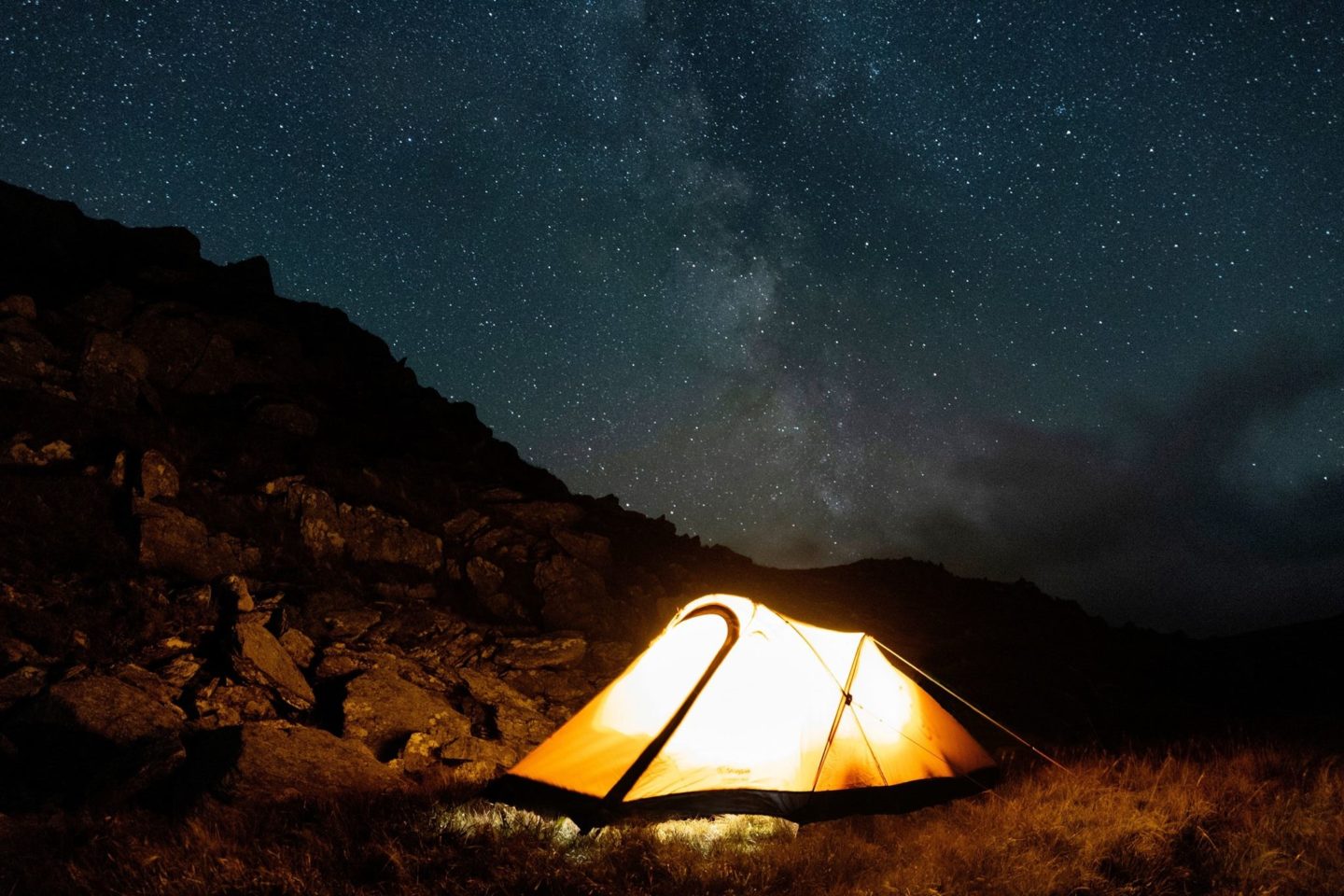
Sleeping bag
Just like your tent, you need this to be as lightweight and compact as possible. A good nylon sleeping back which offers both water resistance and warmth, which folds down effectively, should be your pick.
Sleeping mattress
Very much down to personal preference, you can keep your load super light by taking a simple roll mat, or opt for a self-inflating or blow-up mattress if preferred.
Travelling essentials
A sturdy rucksack
Depending on what you plan to do on your travels will depend on what size rucksack you require.
We’d recommend assessing the gear you need and the activities you’ll be undertaking before choosing your bag. If you’re going to be doing a lot of walking or trekking, try to be as economical as possible.
Ensure your bag is completely water resistant, and structured with some padding and straps – any bag that doesn’t fasten at the waist is likely to cause drag on your shoulders.
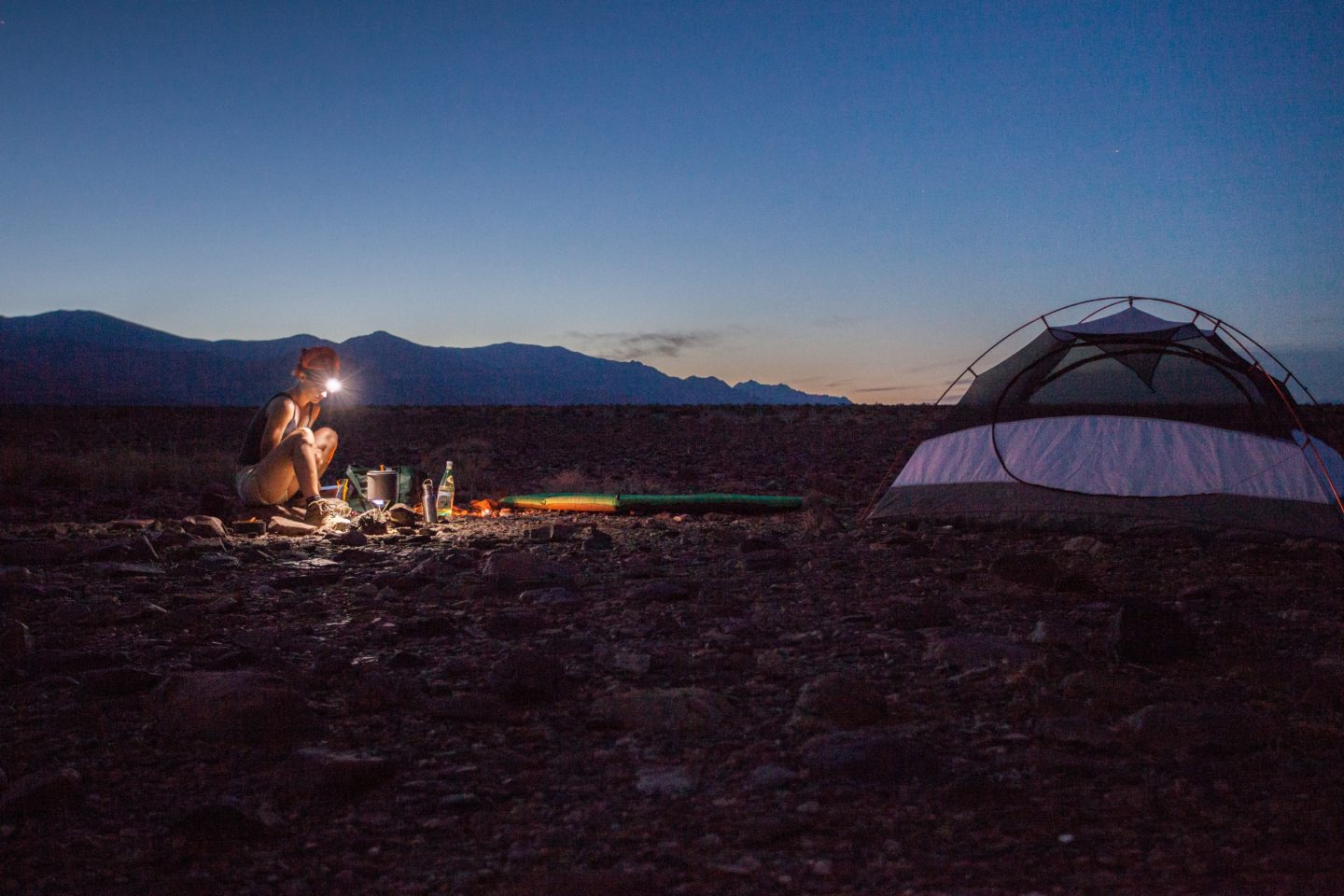
Head torch
It goes without saying – a head torch is going to be one of your greatest companions, especially if you’re camping during the darker months. Being hands-free is also a bonus.
Power bank
A power bank which can recharge your phone / camera / any other essential electricals is a must. Look for one which has a capacity of at least 20,000 mAh (and check the power level your devices need too, so you can find the right bank for you).
Waterproof clothing / thermals
Layering is a simple yet effective means of staying warm and travelling light. Ergonomically-designed thermals should regulate temperature effectively without being too bulky, and fit underneath waterproof clothing where required.
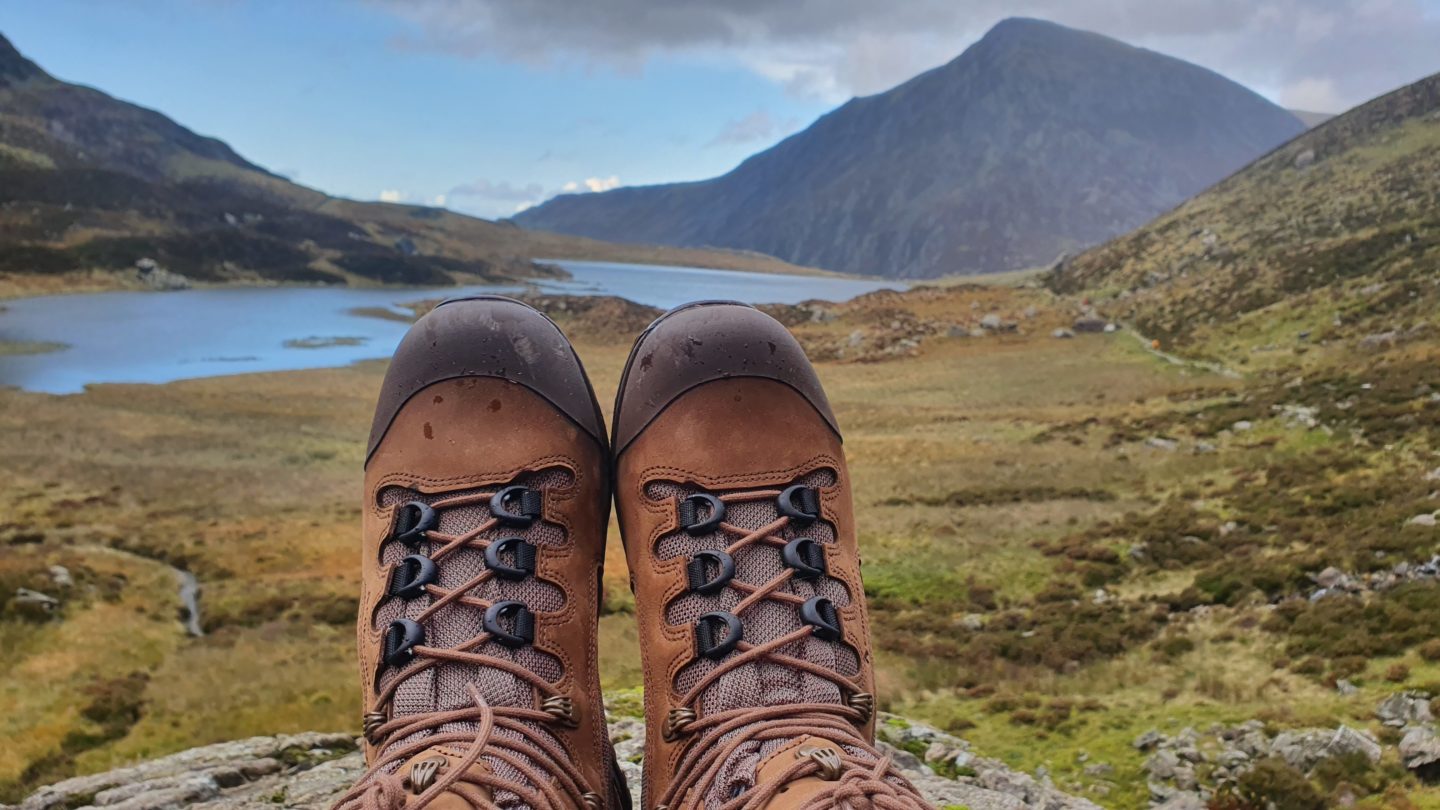
Durable boots
A good pair of walking boots should fit relatively snugly, and of course be comfortable – if your heel slides, or your toes touch the end, they are not suitable.
Try to pick a pair with an ankle / heel collar for support, and a decent tread which offers good traction.
Cooking essentials
A cooking stove
A cooking stove and/or camping kettle will offer you a means of cooking easily on the go. Try to find a 2-in-1 item such as the Aluminium Ghillie Kettle & Cook Set.
Kit such as this offers you the freedom and simplicity to add dry leaves and twigs to the chamber to light – meaning you don’t have to carry fuel or firewood.
This item would also provide you with effective warm water for simple bathing where required.
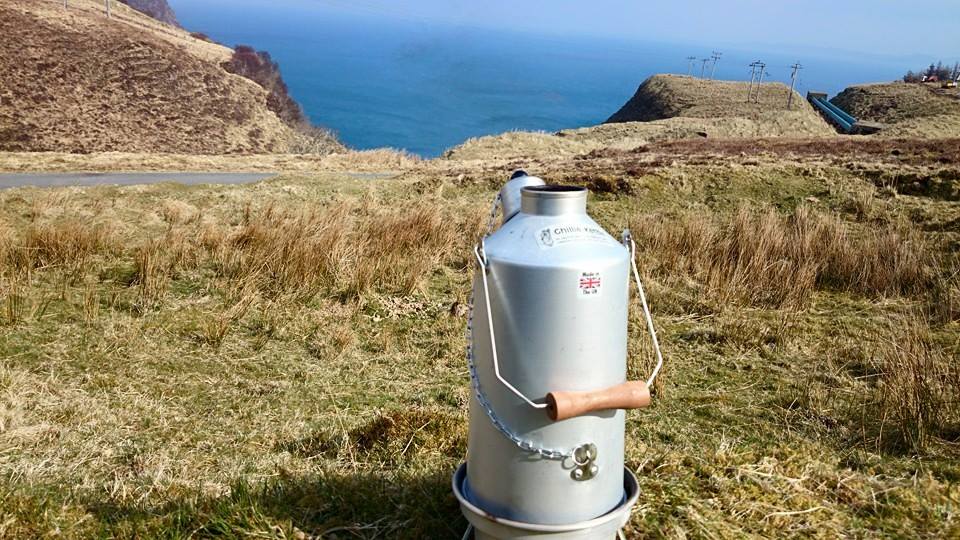
Utensils
A few basic utensils such as 3-in-1 cutlery, an enamel mug, and a mess tin will provide the versatility to eat any meals you prepare.
Water bottle
A good capacity water bottle, which is leak-proof, durable, and easy to transport will be your most loyal companion.
Opt for a bottle which can offer filtration or purification like the LifeSaver Liberty bottle, which has an inline pump which allows for effective water extraction from any source.

Wild camping etiquette
With great freedom comes great responsibility – whilst most areas in the UK are freely accessible on foot, you should still take care and be as gracious as possible to local residents and landowners and if required gain permission.
Do not disturb your surroundings in order to camp, and ensure you are at least 100 meters away from walking paths, access roads, and residential areas.
Also be sure to check the wild camping laws for the local area, and leave without a trace – after all, wild camping is beneficial to everyone when the scenery is left just as it is found.
Join us on Instagram for more wild camping and outdoor adventures.